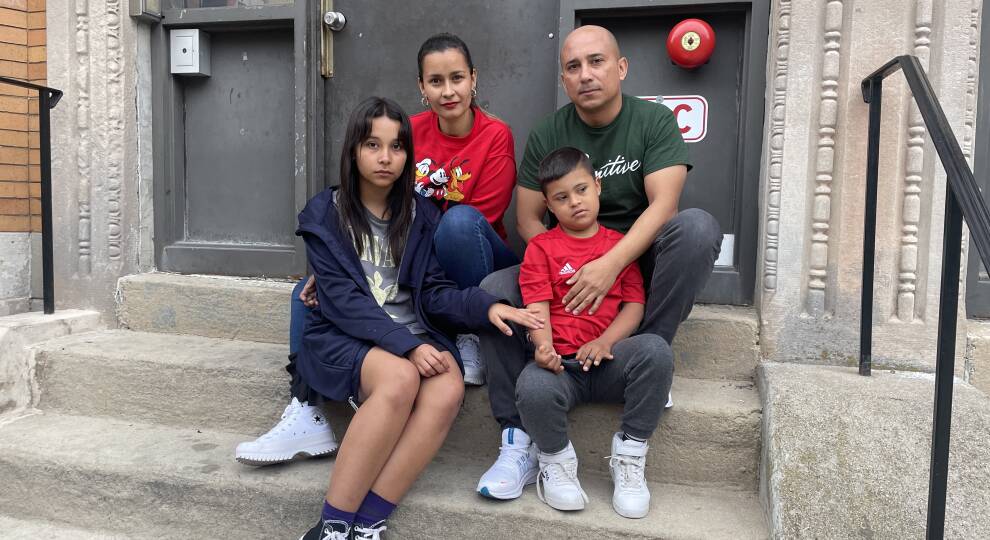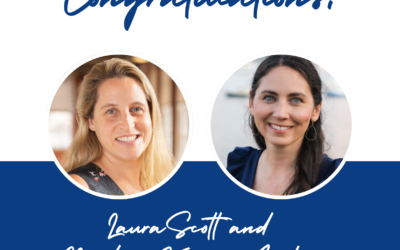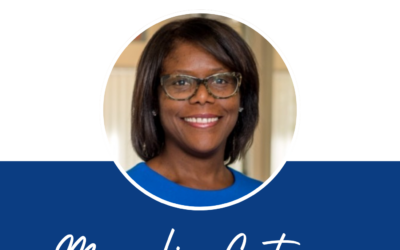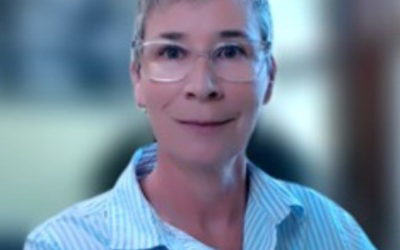With strife behind them, a young migrant family prepares to seek asylum in Boston
Note: Story written by Sarah Betancourt and originally published on 8/2/23 on WGBH.
Freddy Torres and his family arrived at Boston Logan International Airport on a frigid December day last year, not knowing what would happen next.
Torres, his wife, Adriana, and their two young children had fled Colombia seeking political asylum, crossing into the United States from Mexico. Now in Boston, they had a place to stay for one night through a friend and $1,200 in their pockets.
“It was hard, and I was so nervous,” Torres told GBH News recently in Spanish. He said he asked himself, “Why did I come? What did I do? What is happening? What about the children?”
The Torres family is part of a steady stream of migrants coming to Massachusetts—a number that has spiked as people from South America and the Caribbean flee violence and political turmoil.
Calling it a humanitarian crisis, Governor Maura Healey has activated the National Guard to support migrants at Joint Base Cape Cod and launched two welcome centers in Boston and Quincy. But the influx of desperate people is so great that families are flooding nonprofits and local hospitals.
Now seven months in, the Torres family has housing through the state shelter system in Dorchester. Freddy and Adriana, the parents, are working multiple jobs to make ends meet as they wait for an immigration hearing in November.
They feel blessed that they are safe, and grateful for the city workers and advocates who have helped them find housing and education for their children. But the initial emotions they experienced upon arriving are something other migrants feel, too: confusion, fear and trauma.
The Torres family found an apartment with the help of the Boston-based nonprofit FamilyAid. Larry Seamans, the group’s president, says he wants to help all new migrants arriving in Boston. But he compares the growing need to a “natural disaster” that has inundated the state.
“The needs of families coming now seem to be greater because the volume is higher,” he said. “Part of it is figuring out how to manage the crisis.”
‘We’ve got a family here.’
Torres, 42, says he fled Colombia with his family because he feared persecution from the new administration of Gustavo Petro. The president is a former member of the M-19 guerrilla group, similar to those Torres once investigated as part of his job in the Colombian military. The family also sought help for their two children: their 14-year-old daughter, Zhayreth, has diabetes and their 8-year-old son, Freydar, has Down Syndrome and autism.
They left Colombia in December and flew to Cancun, Mexico by plane. Once there, Torres hired a human smuggler known as a coyote to lead them to Ciudad Juarez, which borders Texas.
Torres remembers how nervous he was when the coyote unexpectedly arrived with two other men to guide them. “In Mexico before crossing, you don’t sleep. You worry about your kids, that something will happen to your wife, that they will be killed, that they will be kidnapped,” he said.
Despite his concerns, he says, they crossed the border without incident and presented themselves to border patrol officials for asylum. The family spent two days in the custody of U.S. Customs & Border Patrol in Texas before being released with humanitarian parole—an immigration status that lets migrants stay temporarily in the United States.
Mayor Michelle Wu’s administration has long anticipated the arrival of more immigrants like the Torres family. Yusufi Vali, deputy chief of staff at Wu’s office, told GBH News in June that the city had intervened to get people into temporary shelters and hotels while immigrants work on their applications for the state shelter system through the Department of Transitional Assistance.
The state of Massachusetts’s Executive Office of Housing and Livable Communities, or EOHLC, manages an emergency shelter system for families, working in tandem with the state’s Department of Transitional Assitance to carry out that work. But soaring numbers have exposed a need for more services, prompting the city to become more involved.
“That’s the role that we’ve seen ourselves playing here and just trying to, again, fill in gaps as the state comes up with a more sustainable regional strategy,” Vali said.
Typically, Vali said, the process begins when families arrive at local hospitals and police departments. Other times, a resident may call 311 and simply say, “We’ve got a family here,” he said.
That’s when one of two neighborhood liaisons with Haitian Creole and Spanish language skills gets involved.
Helping out families
The Torres family was connected to liaison Gladys Oliveros after they ended up at the East Boston branch of the Boston Police Department, directed by locals from the Maverick MBTA station.
Oliveros, 58, spends her days working with Latino communities around Boston, especially with migrants who have just arrived and need connecting to services. She says she asks about medical needs, whether they’ve had a meal, and calls the city to arrange for short-term hotel housing. Then, she takes them there.
“When I meet people, they’re scared, not knowing what to do, but when I speak Spanish, they suddenly feel comfortable, and have the energy to open up and talk,” she said.
Oliveros says she understands their plight because she entered the United States without official documentation 32 years ago.
“I see myself in them. I’m so happy to be there, and helping them,’’ she said, starting to cry while explaining why her work means so much to her. “I was once in that position.”
Oliveros helped the Torres family stay at a hotel for a few nights. Then she asked them to meet her at a Department of Transitional Assistance office in Nubian Square. The couple says they filled out a “mountain” of paperwork and were told to meet outside of a supermarket that evening where a Lyft took them to an apartment in Dorchester.
That’s where they met social worker Paola Batista of FamilyAid.
“It was a blessing,” said Freddy Torres. “Paola told us not to worry and talked to us about the children and our immigration situation. There was no fear we would be evicted overnight.”
The family can stay at the three-bedroom Dorchester apartment while they obtain work authorization and earn enough to no longer qualify for state-funded emergency shelter, according to FamilyAid.
The City of Boston is hiring two more community liasons to help migrants navigate the emergency housing and shelter systems. In addition to housing, many need help with employment, schools and health insurance.
Batista helped the Torres family enroll for health insurance at Boston Medical Center and secure doctor appointments. While there, their daughter’s blood sugar spiked because she’d been without insulin for days, making her very sick. She stayed in the hospital over the weekend.
“We spent New Year’s at the hospital,” said Torres.
Over the winter they were connected to the East Boston Community Soup Kitchen for groceries. That’s an oasis for free and healthy foods based out of Our Savior’s Lutheran Church in Maverick Square. They found out Adriana was pregnant, and she started going to prenatal appointments. Through a friend, they were able to find short-term work shoveling snow.
Commonwealth struggles to meet demand
Batista says families in similar situations tend to stay at least a year. The Torres family shares the apartment with a nephew, a young adult who gets his own room. The kitchen and living room are one large room, with few decorations other than the essentials—a table and chairs for eating and a couch. Adriana and Freddy share a room with Freydar, and Zhayreth has her own.
“These are things of God. For us to end up in this apartment,’’ Torres said. “I knew no one.”
But the Torres family has been luckier than most. The state shelter system has been strained. FamilyAid, which has a contract with the state to provide housing and help with social services, added 12 units of housing in the past four months to compensate for the new families.
“Two years ago, the population of new arrivals in our shelters was about 10 percent. That number is now increased to over 33 percent in just the last 12 months alone,” said Seamans. He said there is not enough low-income housing for every family.
In June, Governor Maura Healey called the influx “unprecedented” and said her office is working with local and federal authorities on “long-term solutions to this crisis.”
“We’ve seen a steady rise in shelter demand due to the rising cost of housing, more families arriving in our nation and our state from other countries, and delayed federal work authorizations,” Healey said.
To address the crush, Healey hired a group of well-known immigration advocates to top posts at the state Office of Refugees and Immigrants. They quickly launched the state’s first Welcome Center in Allston to process migrants and set up temporary housing at Joint Base Cape Cod.
A second intake center opened on Monday in Quincy at Eastern Nazarene College, this time with on-site shelter for up to 58 families.
“We want to be providing a smoother, more efficient sort of access and entry point into the state shelter and care system,” said Ronnie Millar, director of Strategic Initiatives at the state Office of Refugees and Immigrants.
Another organization struggling to keep up with demand is the East Boston Community Soup Kitchen, where Freddy and Adriana pick up groceries. Executive Director Sandra Lorena Aleman-Nijjar, an immigrant from El Salvador, launched the project in 2016 after seeing the need in her community.
Aleman-Niijar says the soup kitchen gives 450 bags of groceries on Mondays to locals and new arrivals—anyone who needs food like eggs, vegetables and bread.
“Usually they don’t have income because they don’t have an immigration status,” she said. “There’s always new families that come to us to say, ‘I’m new here. I just got here a week ago, two months ago.’”
Aleman-Niijar says the needs in her community are exploding, both because of new migrants and others facing hard times. She’s been seeking funds from the city, politicians and large foundations to provide a new space and more food. “I’ve been begging everyone I know,” she said.
‘More peace, more calm’
It’s 3:30 on a Tuesday afternoon and Freydar Torres has just been dropped off at home after his day at the public George Conley Elementary School in Roslindale. The 8-year-old with Down Syndrome cheerily follows his father around the apartment, later flinging himself onto the couch while echoing the sounds of a video game in his hands.
Torres hugs his son. “Freydar is happy,” he said. “He can’t express it but I know he’s content, joyful.”
Then Freddy Torres prepares for work. He’s working at a company an hour away where he cleans and packs fish onto ice during the night hours. He arrives home about 6:30 a.m. to see the kids off to school. Adriana has piecemeal employment cleaning at a Lexington hotel, and her commute is often about two hours each way. She’s out the door when Freddy returns.
“We see each other so rarely,” said Freddy Torres, who works six days a week. “But you need clothes, food, soap, toilet paper – so we got jobs. We were lucky to find work.”
Each morning, Torres says he waits until Zhayreth messages him that she’s arrived at her eighth-grade class safely before heading to bed in the morning.
On that Tuesday, Zhayreth came home from a school trip to Lake Canobie looking happier and healthier than the girl they knew before they fled their native country. Torres believes that anxiety from their past life contributed to Zhayreth’s poor health. “She knew a lot about what was going on [in Colombia],” Torres said. “I think here she feels more at peace, more calm.”
Zhayreth, tall with expressive eyes and long, dark brown hair, says she loves school. She told a GBH reporter in an interview in English and Spanish that she’s enthralled by the fact that there’s a computer lab, something she says is a “rarity” in Colombia. She was surprised by how diverse the other students are, originally from Vietnam and the Dominican Republic. “But it’s good, you’re friends,” she said.
She listens to 90’s band Nirvana, and is wearing a tee shirt with the band’s logo under a zip-up hoodie. “Sometimes I use the music to try to understand English,” she said in English, grinning.
In her sparse room, she shares a sketchpad and a book she’s reading for school.
“Coraline,” said Zhayreth. “It’s about a girl who moves from one home to another, but during that time, she finds a door to a different world.”
Now Freddy and Adriana Torres are collecting paperwork to support their asylum claim, which they plan on filing in November. They are on a waitlist to obtain a pro bono attorney with Greater Boston Legal Services.
Freddy Torres says he understands that the increasing needs in the community are contributing to the scarcity of legal services. He’s hopeful for a positive outcome to their long journey north. So far, he says, everything has worked out.
“Sometimes I wonder if God puts people in our paths,” he said.



